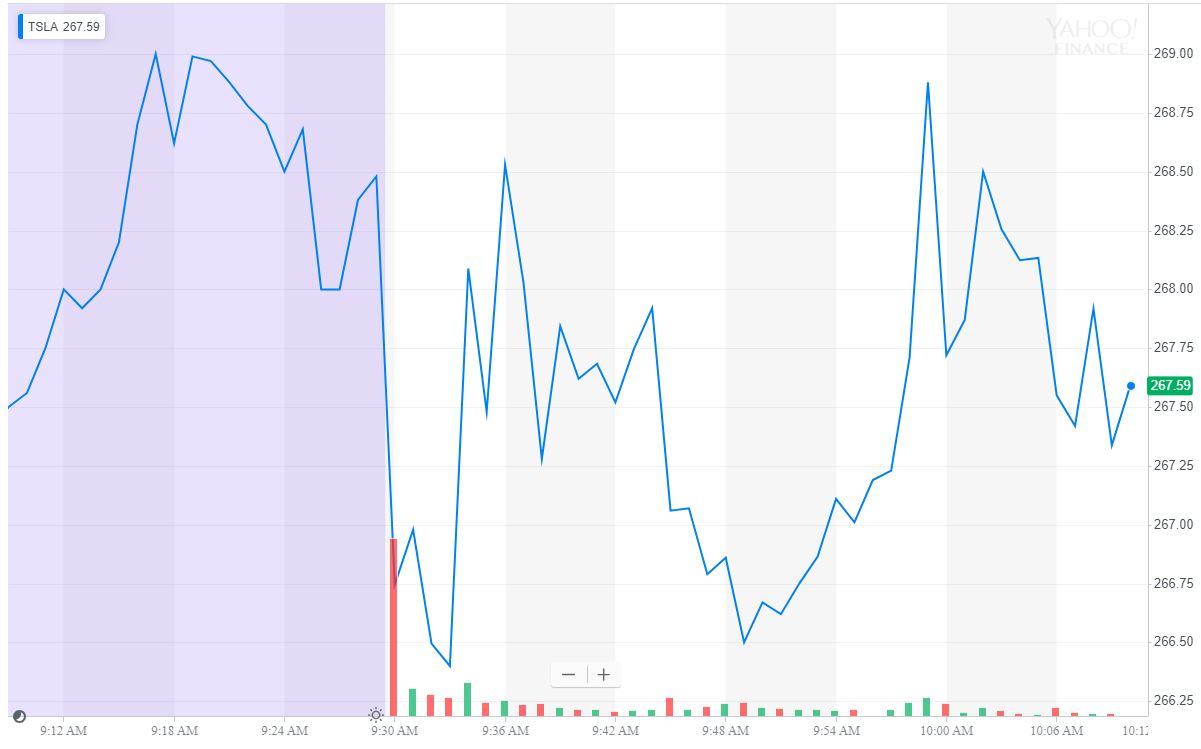Tesla Stock Plunges 91%: A Modern-Day Wall Street Enigma
The world of finance is always full of surprises, but the recent 91% plummet of Tesla's stock value has left many investors stunned. As of March 2023, Tesla's stock had lost an astonishing 91% of its value since November 2021, making it one of the most significant stock market crashes in recent history. But what could have caused such a sudden and drastic shift in the company's fortunes? Is this a legitimate market reaction, or is there something more sinister at play? In this article, we'll delve into the world of Tesla's stock performance and explore the various factors that may have contributed to this remarkable decline.
Tesla's Rise to Prominence
Tesla, Inc. has been a driving force in the electric vehicle (EV) industry since its inception in 2003. The company's vision of making sustainable energy accessible to everyone has resonated with investors, and its stock price has reflected this growing demand. However, the company's ambitious plans, combined with intense competition from other automakers and the ongoing pandemic, have led to a volatile stock market performance.
The Electric Vehicle Boom
The electric vehicle market has experienced tremendous growth in recent years, driven by increasing awareness about climate change and government regulations aimed at reducing carbon emissions. Tesla has been at the forefront of this movement, with its Model S, Model 3, and Model Y cars becoming increasingly popular among consumers. But as the market has grown, so have the challenges facing Tesla. Competition from established automakers, such as General Motors and Toyota, has intensified, and the company has faced significant criticism over its production costs, manufacturing quality, and safety record.
Market Factors Contributing to Tesla's Plunge
Several market factors have contributed to Tesla's recent stock decline, including:
- High Interest Rates: The Federal Reserve's decision to raise interest rates has led to a decrease in the demand for Tesla's stock, as investors seek safer investments with higher returns.
- Competition from Traditional Automakers: The rise of traditional automakers, such as General Motors and Toyota, has increased competition for Tesla in the EV market.
- Production Costs and Manufacturing Quality Issues: Tesla has faced criticism over its production costs and manufacturing quality, which has led to a decrease in investor confidence.
- Safety Record Concerns: Tesla has faced several safety-related incidents, including a massive Autopilot software update and a number of fatal accidents, which has led to increased scrutiny and decreased investor confidence.
The Role of Short Sellers and Hedge Funds
Short selling and hedge funds have been accused of contributing to Tesla's stock decline. Short sellers, who bet against a company's stock price, have been targeting Tesla's shares, betting on a decline in the company's value. Hedge funds, which invest in a variety of assets, have also been involved in the short selling, using various strategies to profit from Tesla's decline. However, it's worth noting that short selling is a normal part of the market, and it doesn't necessarily mean that there's anything wrong with the company itself.
The Impact of Elon Musk's Twitter Rants
Elon Musk, Tesla's CEO, has been known for his active use of social media, particularly Twitter. His tweets have often generated significant buzz and debate, and some have accused him of using the platform to manipulate the market. In recent months, Musk has tweeted about Tesla's stock performance, expressing his frustration with the company's valuation and the lack of confidence in its future prospects. While Musk's tweets are certainly attention-grabbing, it's worth noting that they don't necessarily affect the company's stock price.
Market Conspiracy Theories
Some investors and analysts have speculated about a possible market conspiracy involving Tesla's stock decline. They point to the unusual volume of short selling and the involvement of hedge funds, as well as the lack of fundamentals supporting the company's valuation. However, it's essential to approach these claims with a healthy dose of skepticism, as they often rely on incomplete or inaccurate information.
The Importance of Fundamental Analysis
When evaluating a company's stock performance, it's essential to focus on fundamental analysis. This involves examining the company's financial statements, management team, industry trends, and competitive landscape. By doing so, investors can get a more accurate picture of the company's prospects and make informed decisions about their investments.
Conclusion
Tesla's 91% stock decline is a complex and multifaceted issue, influenced by a range of market factors, including high interest rates, competition from traditional automakers, production costs, safety record concerns, and the role of short sellers and hedge funds. While market conspiracy theories abound, it's essential to approach these claims with caution and focus on fundamental analysis. By doing so, investors can separate fact from fiction and make informed decisions about their investments.
What Can Investors Do to Protect Their Portfolios?
- Diversify Your Portfolio: Spread your investments across various asset classes, including stocks, bonds, and commodities, to reduce your exposure to any one particular stock or market.
- Stay Informed: Keep up with market news and trends, but avoid making impulsive decisions based on speculation or emotions.
- Focus on Fundamentals: Analyze a company's financial statements, management team, industry trends, and competitive landscape to make informed investment decisions.
- Consider dollar-cost averaging: Invest a fixed amount of money at regular intervals, regardless of the market's performance, to reduce the impact of volatility on your portfolio.
Understanding the Risks Involved in Short Selling
- Risk of unlimited losses: Short selling involves betting against a company's stock price, which can result in unlimited losses if the price moves in the opposite direction.
- Leverage and margin calls: Short sellers often use leverage and margin to amplify their gains, but this can also lead to significant losses if the market moves against them.
Uday Chopra
Zeochip
Demet Zdemir
Article Recommendations
- Sophie Rain
- How Tall Was Lorne Greene
- Helmut Newton Famous Pos
- Lyra Crowd
- Norafawn
- My Pillow Net Worth
- Esownload
- Lisa Liberati
- Chris Mcnally
- Alexis Bledel



